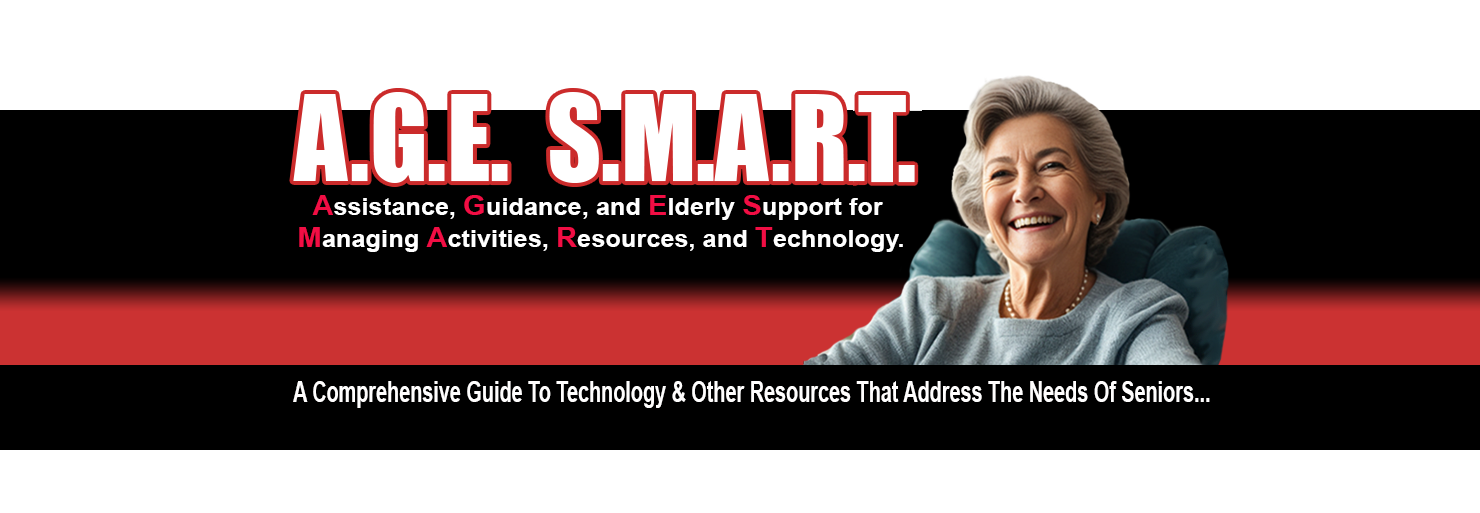- Cognitive Stimulation
- Communication
- Daily Living Assistance
- EZ Relaxing Coloring Digitally
- Fall Detection
- Financial Management
- Gratitude Journal
- Grocery Delivery
- Health Monitoring
- Home Maintenance
- Home Monitoring
- Medication Management
- Memory Support
- Mental Health Support
- My Appointments
- Personal Assistants
- Remote Caregiving
- Safety
- Social Connection
- Telecommunications
- Telehealth
- Today's To Do List
- Transportation
- Transportation Monitoring
- Word Search Puzzles

Communication
- Technology solution: Video calling apps, like Skype or FaceTime, enable seniors to stay connected with family and friends, reducing feelings of loneliness and isolation. Being able to see loved ones through video calls can help maintain social connections and emotional well-being.
Skype: https://www.skype.com/en/
Facetime: https://apps.apple.com/us/app/facetime/id1110145091
 The rise of video calling apps, such as Skype and Face, has transformed the way people communicate, particularly in the older adult population. As seniors face unique challenges related to social isolation and loneliness, these technological solutions have played a crucial role in bridging the gap and enhancing their well-being.
The rise of video calling apps, such as Skype and Face, has transformed the way people communicate, particularly in the older adult population. As seniors face unique challenges related to social isolation and loneliness, these technological solutions have played a crucial role in bridging the gap and enhancing their well-being.
Studies have shown that social connections are essential for overall mental and emotional health, and seniors are particularly vulnerable to feelings of isolation due to factors such as physical limitations, mobility issues, and the loss of friends and family members. According to the National on Aging, social can have serious negative consequences for seniors, including an increased risk of depression, cognitive decline, and other issues.
Video calling apps offer a lifeline for seniors to stay connected with loved ones, friends, and caregivers, regardless of physical distance. By enabling face-to-face conversations in real-time, these platforms provide a sense of closeness and connection that traditional phone calls or letters may not replicate. For older adults who may not have the ability to travel or attend social gatherings, video calls can provide a vital means of maintaining relationships and combating feelings of loneliness.
Dr. Sarah Johnson, a geriatric psychiatrist specializing in senior mental health, emphasizes the importance of technology in supporting the emotional well-being of older adults. "Video calling apps can be a game-changer for seniors who may feel isolated or disconnected from their support network," says Dr. Johnson. "By facilitating social interactions and virtual visits, these platforms can significantly improve mood, cognition, and overall quality of life."
Real-life examples illustrate the transformative impact of video calling apps on seniors' social and emotional well-being. Mary, a 78-year-old widow living in a retirement community, shares how FaceTime calls with her grandchildren have brought joy and companionship into her daily routine. "I look forward to our video chats every week. It's like having them right here with me," says Mary. "I feel less alone and more connected to my family, even though we're miles apart."
To maximize the benefits of video calling apps for seniors, experts recommend the following tips:
1. Set a regular schedule for video calls with loved ones to maintain consistency and build anticipation.
2. Familiarize yourself with the features and settings of the app to ensure a smooth and stress-free experience.
3. Use headphones or a headset to improve audio quality and reduce background noise during calls.
4. Consider arranging virtual group gatherings or social activities to enhance social interaction and engagement.
5. Stay patient and flexible with technology and seek support from family members or tech-savvy friends if needed.
While video calling apps offer numerous advantages for senior communication, it's essential to acknowledge potential drawbacks or challenges that may arise. Issues such as limited access to technology, privacy concerns, and difficulties with screen navigation can impact the user experience for older adults. It's important for seniors and their families to address these challenges proactively and seek assistance as needed to ensure a positive and meaningful connection through video calls.
In conclusion, video calling apps have become invaluable tools for seniors seeking to combat loneliness and maintain meaningful relationships. By leveraging technology to connect with loved ones and stay engaged with their communities, older adults can enhance their social and emotional well-being in meaningful ways. While acknowledging the limitations and considerations of using these communication technologies, it's clear that video calls play a vital role in supporting the overall health and happiness of seniors in today's digital age.